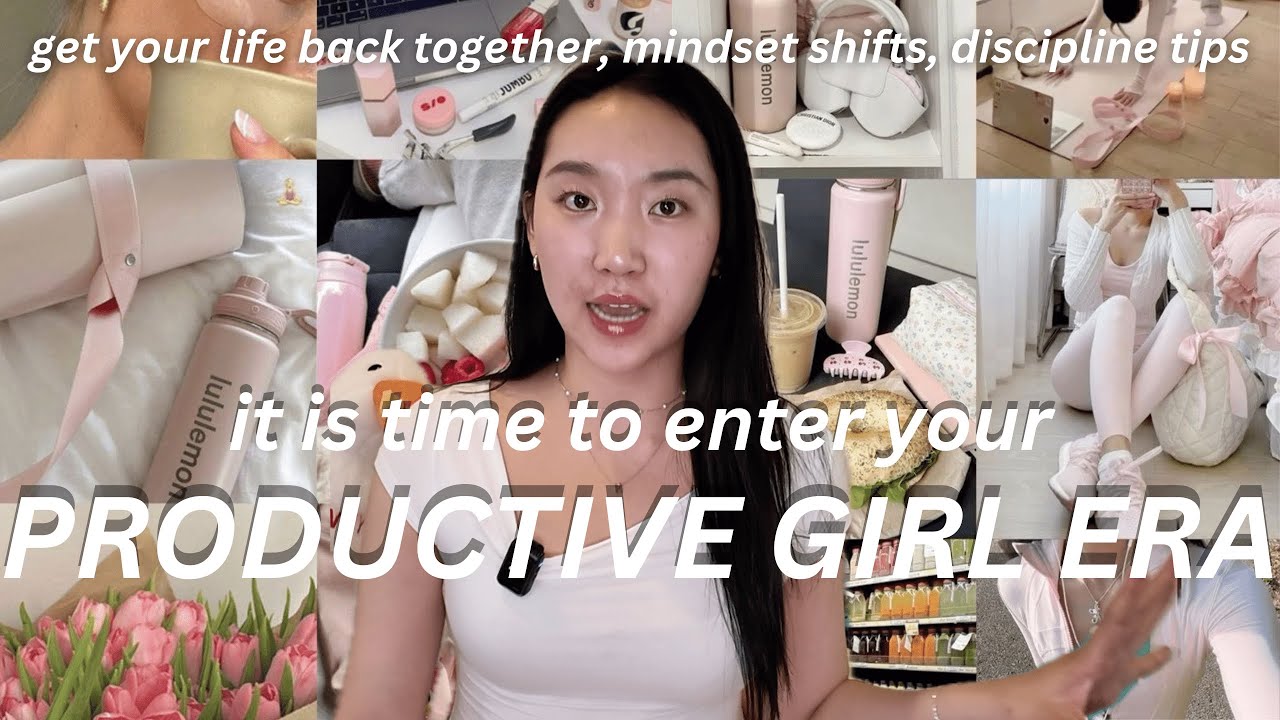The Quick-Start Method to Make Studying Long Hours Weirdly Easy 🤨
Summary
TLDRThis video provides practical steps to improve study habits and boost productivity. It emphasizes time-blocking study sessions, using timers, and practicing active recall with MCQs. The script encourages managing distractions by writing down intrusive thoughts and suggests the PES method to approach complex topics. The video also highlights the importance of taking focused breaks and establishing keystone habits to build consistency. Additionally, it stresses enjoying the studying process to make learning more engaging and manageable. These actionable strategies aim to help viewers stay focused, avoid procrastination, and create lasting positive habits.
Takeaways
- 😀 Time-block your study sessions with specific start and end times to stay organized and focused.
- 😀 Prioritize fixed tasks (homework, quizzes) before variable tasks (essays, studying large topics) to manage your time efficiently.
- 😀 Use a timer, like Pomodoro or a simple clock, to create urgency and boost productivity during study sessions.
- 😀 Start each study session with active recall by testing yourself on past topics or questions to prime your brain for better learning.
- 😀 Write down any distracting thoughts during study time on a Post-It note to clear your mind and refocus.
- 😀 Push past the initial resistance at the start of studying to enter a focused flow state, where distractions are minimized.
- 😀 Take breaks after long study periods (15-30 minutes) to fully dislodge from the task and reset your brain for better focus.
- 😀 Study in layers: First focus on basic information, then concepts, and finally dive into details for deeper understanding.
- 😀 Build consistency by starting with a small, manageable habit (e.g., doing 5 MCQs a day or staying back for an hour after class).
- 😀 Focus on building the right mindset for studying, including dealing with stress and challenges, which is essential for long-term consistency.
Q & A
What is the first action the speaker takes to improve their study habits?
-The first action is time blocking every second of the study session. The speaker plans every task with a specific start and end time and places it on their calendar.
Why is it important to prioritize fixed tasks before variable tasks?
-Fixed tasks are tasks with a known time requirement, such as homework or quizzes, which are less intense. By finishing them first, you leave less room for procrastination and ensure more important but time-consuming tasks are limited.
What role does using a timer play in the study process?
-Using a timer helps the speaker stay focused by creating a sense of urgency. It forces them to finish tasks within a set timeframe, thus improving productivity.
How does doing MCQs or questions before starting a study topic help the speaker?
-Doing MCQs or questions helps gauge what the speaker already knows, enhances active recall, and primes the brain for the upcoming study material, easing them into a focused work mode.
What should you do when distracting thoughts arise during studying?
-The speaker suggests writing down distracting thoughts on a Post-It note, so they don't take over the study session. This technique helps clear the mind and keeps focus on the task at hand.
What is the 'loading phase' in the context of focus and productivity?
-The loading phase is the initial phase when resistance to work is high, and it feels difficult to concentrate. Pushing through this phase eventually leads to a flow state, where focus improves naturally.
What is the importance of mindset in maintaining consistent study habits?
-Mindset is crucial because it helps handle stress, overcome challenges, and deal with low motivation. A positive mindset enables consistent progress despite setbacks.
What is the purpose of studying in 'PES' as described by the speaker?
-Studying in PES (presenting information in layers) helps break down complex material. The first pass covers basic concepts, the second pass focuses on general ideas, and the third pass tackles more detailed aspects, making it easier to learn.
How do focused breaks contribute to productivity?
-Taking a focused break, such as going for a walk or talking to someone, helps to recover mental energy. It dislodges attention from the task and allows the brain to reset before resuming work.
What is a keystone habit, and how did it impact the speaker's consistency?
-A keystone habit is a small but impactful action that sets the stage for broader positive changes. For the speaker, staying back an extra hour after class to study became their keystone habit, which led to greater consistency in their overall study and work habits.
Outlines

Этот раздел доступен только подписчикам платных тарифов. Пожалуйста, перейдите на платный тариф для доступа.
Перейти на платный тарифMindmap

Этот раздел доступен только подписчикам платных тарифов. Пожалуйста, перейдите на платный тариф для доступа.
Перейти на платный тарифKeywords

Этот раздел доступен только подписчикам платных тарифов. Пожалуйста, перейдите на платный тариф для доступа.
Перейти на платный тарифHighlights

Этот раздел доступен только подписчикам платных тарифов. Пожалуйста, перейдите на платный тариф для доступа.
Перейти на платный тарифTranscripts

Этот раздел доступен только подписчикам платных тарифов. Пожалуйста, перейдите на платный тариф для доступа.
Перейти на платный тарифПосмотреть больше похожих видео

9 Study Mistakes Killing Your Progress : Stop Now! - A Senior's Guidance | Dr Anuj Pachhel

Study Log - How to use a study log to become a better student

Como passar em concurso - Organização pessoal: Dicas Fundamentais

5 Habits That Save Me 25+ Hours a Week | Time Management For Busy People

La habilidad que debes aprender SI O SI (para todo)

how to EXIT your LAZY GIRL ERA ✨ how to be productive, get your life together, discipline tips, vlog
5.0 / 5 (0 votes)
